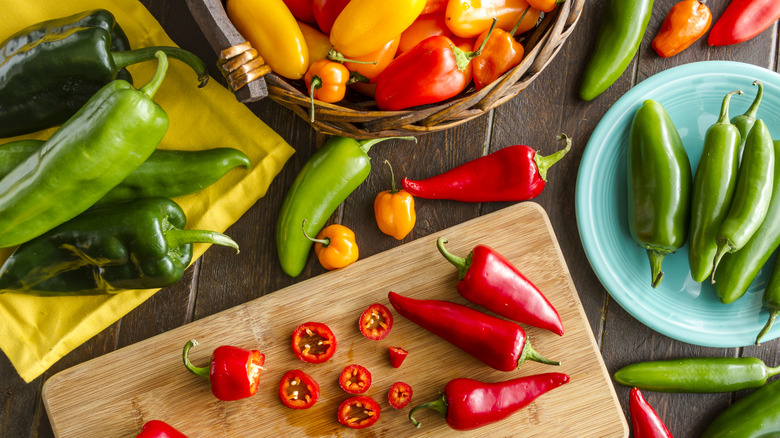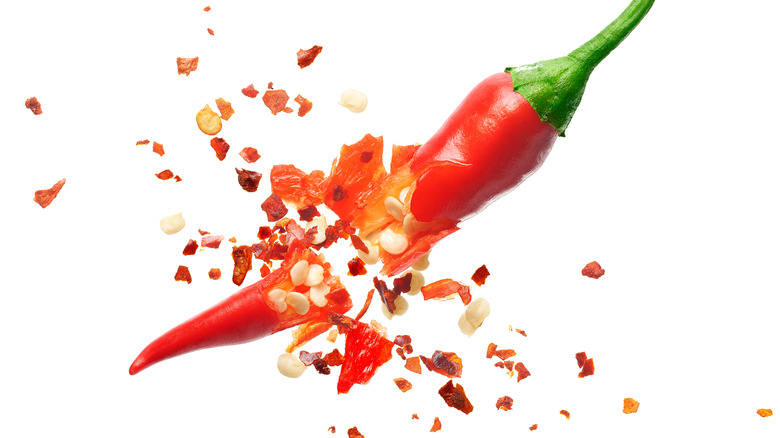What Happens If You Microwave Hot Peppers?
Anyone who has the hots for peppers likely knows that they range in their scale of heat, ranked by something called the Scoville scale. Named after scientist Wilbur Scoville, the scale grades the potency of peppers, measured by Scoville Heat Units (via Chili Pepper Madness).
While bell peppers fall into the tame category, there are plenty of spicy peppers — from jalapeños, serranos, and habaneros, to the exponentially more intense Ghost Peppers and Carolina Reapers — that pack some serious heat. 2017 saw the introduction of the world's newest, hottest pepper, Dragon's Breath, which measures at 2.48 million on the Scoville scale and definitely has the potential to make someone breathe fire (via Food & Wine).
When it comes to dishes made with peppers, there are some milder favorites — like bell peppers stuffed with all assortments of meat, rice, or cheese and the ubiquitous chile relleno, a poblano stuffed with oozing cheese and often swimming in sauce. There are plenty of preparations for hot peppers as well, including incorporating them into ceviche and making sauces and salsas. Hot peppers can also be pickled or dried, made into jams, or infused into oils (via Grow Journey).
Having a passion for peppers may stem from a love of spice itself, but there is evidence to support that eating spicy food has a number of health benefits, including boosting heart health and decreasing inflammation, and may even lead to a longer life (via Cleveland Clinic).
Cooking with hot peppers also comes with some caveats, as you are essentially playing with fire.
Why not microwave hot peppers?
For those who cook with hot peppers on the regular, it may be common knowledge to be careful when handling them, particularly when working with the seeds (via BHG). The heat from peppers that may set your mouth on fire when eating them is far less appealing when it winds up in places like your eyes or, say, your own personal "spicy parts."
However, it may be less common knowledge that microwaving hot peppers can cause serious respiratory repercussions. Once microwaved, whether in an attempt to dry peppers, soften them, or to reheat a particularly spicy sauce, the capsaicin (the element responsible for the heat in a pepper) becomes airborne (via Healthy Women). Any unsuspecting home cooks may then be prone to essentially pepper-spraying themselves, simply by opening the microwave door.
An extreme example of the potentially potent nature of heated hot peppers is highlighted in the story of a curry prepared with 20 Infinity chilis, one of the hottest peppers out there (via Chili Pepper Madness). According to CNN, to prepare the dish, gas masks and PPE were required. The lesson to be learned? If you prefer not wearing protective equipment to make dinner, steer clear of heating hot peppers in close confines.

